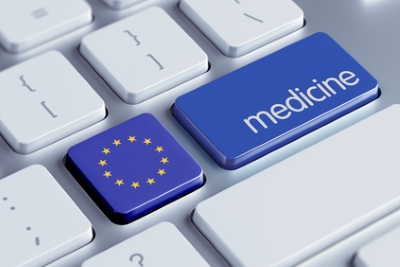
EU countries have put in place penalties for falsifying medicines with jail sentences of up to 15 years in some member states, a new report has revealed.
The move follows requirements under the Falsified Medicines Directive that EU countries outline “effective, proportionate and dissuasive” penalties for those involved in the production and circulation of falsified medicines.
According to the European Commission report, which provides an overview of the measures taken by member states and assesses their effectiveness, there is a wide variation in penalties across the EU for falsifying medicines.
In Sweden, Finland and Greece, penalties include a prison sentence of one year, while in Austria, Slovenia and Slovakia, those caught counterfeiting drugs could get up to 15 years behind bars. The UK maximum prison sentence is two years, while in Germany it is 10.
Likewise, there is also variation in fines across member states, where a maximum fine is €4,300 in Lithuania, €1m in Spain and ‘unlimited’ in the UK.
The European Commission found the measures taken by member states to be “satisfactory” but called for the penalties to be well enforced, said Vytenis Andriukaitis, commissioner for health and food safety. “I urge all EU countries to make sure that criminals falsifying medicines are punished. After all, falsified medicines can kill.”
The Falsified Medicines Directive, which comes into force in February 2019, requires pharmaceutical manufacturers to apply safety features to medicines packs including a 2D barcode and tamper-proof seal to ensure authenticity and supply chain traceability.
In addition, the Directive strengthens good distribution practices and requirements for wholesale distributors, reinforces rules on importation, controls and inspections of active substances and their manufacturers, and establishes an EU-wide logo to allow the identification of legal online retailers of medicines.
Under the Directive, member states are required to enforce these provisions and ensure compliance through penalties.
According to the report, 26 member states have introduced changes to their legislation in relation to penalties for the falsification of medicines, active substances and excipients.
In 21 member states the manufacturing, distribution, brokering, import, export and online sale of falsified medicines all attract criminal penalties, while in the seven remaining member states, some activities are covered by civil penalties (such as fines) rather than criminal penalties. For instance, in Bulgaria, criminal penalties apply only to the import or export of falsified medicinal products, with the remaining activities covered by civil penalties. In contrast, in Latvia, criminal penalties cover manufacturing, distribution and brokering, while there are civil penalties for import and export.
All 28 member states apply criminal penalties in the form of imprisonment for the falsification of medicines. Prison sentences range from one year to 15 years across the EU, with the maximum prison sentence being at least three years in 20 member states.
Applying maximum prison sentences of at least three years can facilitate the sharing of evidence through a European Investigation Order, which may be relevant if crimes have been committed across multiple member states, the European Commission notes.
In terms of fines, the report states that eight member states have criminal fines only, while seven have civil fines only. The 13 remaining member states have both criminal and civil fines. Maximum fines range from €4,300 in Lithuania to €1m in Spain. France places a maximum fine of €750,000.
In 23 member states, misconduct in relation to active substances is a criminal offence. In regards to this, Austria has a maximum prison sentence of 15 years, Germany and Ireland have 10 years, the UK, two years, and Luxembourg, six months.
A total of 26 member states apply criminal or civil fines in relation to active substances, with the maximum fines ranging from €1,500 in Lithuania to €1m in Spain.
Meanwhile, 14 member states list misconduct in relation to excipients as a criminal offence, with maximum prison sentences ranging from six months to 15 years. Twenty member states also apply criminal or civil fines for excipient misconduct, where maximum fines range from €2,200 in Romania to €1m in Spain.
All member states except Finland, Luxembourg and Malta have introduced additional administrative sanctions – such as the revocation of licences or seizure/withdrawal of unlawful products from the market – for the falsification of medicines, active substances and/or excipients.
The report noted that it was “difficult to measure the effectiveness of specific national penalties due to a lack of exhaustive data on incidents in the member states and the inherent illegal nature of the activities”.
However, experts did consider that all the penalties in place had at least some effect in reducing the presence of falsified medicines in the legal supply chain. Overall, administrative sanctions were rated as effective more often.
For the illegal supply chain – that is the purchase of medicines from illegal online pharmacies – six experts considered that the criminal penalties had at least some effect in reducing the presence of falsified medicines in the illegal supply chain.
In some cases, experts believed that falsified medicines had reduced by 25 per cent in both the legal and illegal supply chains since the introduction of the FMD.
“The effective enforcement of existing penalties is crucial in addressing the falsification of medicines, active substances and excipients. It is important to ensure that enforcement officials are well trained and given adequate resources to investigate pharmaceutical crimes,” the EC concluded, noting that some member states could consider introducing additional criminal penalties and administrative sanctions.
It added: “The falsification of medicines is a serious threat to public health. Discouraging the falsification of medicines through suitable penalties will only be possible on the basis of continued cooperation, sharing of best practices and effective monitoring of the legislation in place.”
©
SecuringIndustry.com





